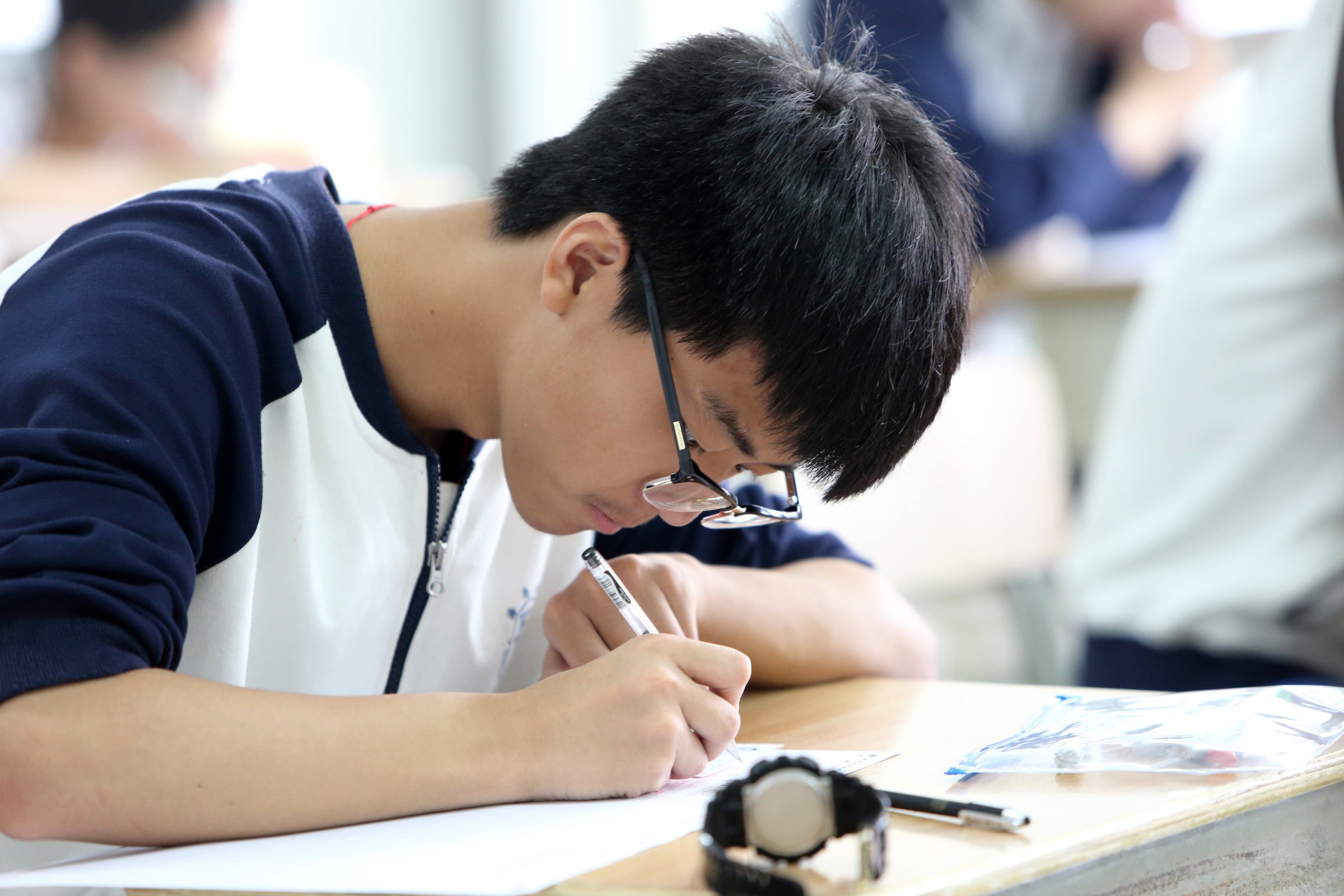
Chinese students sitting down to the most important exams of their lives this week needed no reminder of how high stakes were. But they got one — the promise of jail time if they were caught cheating on their tests.
It’s the first time that custodial sentences have been stipulated for anyone using underhand tactics to get ahead their gaokao university entrance examinations — essentially China’s equivalent of America’s SAT.
School leavers are assessed on their Chinese, mathematics, English and another subject of their choosing, though accusations of mass cheating have been rife in recent years, even involving alleged organized syndicates between teachers and pupils. In 2013, there was a riot at one school when invigilators tried to halt brazen exam fraud.
Already, surveillance drones and metal detectors are deployed to catch those smuggling in illicit radio equipment, while iris and fingerprint scanners ferret out brainy stooges paid to sit the test in lieu of the bona fide student.
Read More: Read Stephen Hawking’s Charming Message to Stressed Chinese Students
Now, though, those caught cheating will be banned from repeating the test for several years, while anyone caught facilitating mass cheating or paying someone else to sit the test on their behalf can face up to seven years in prison.
“So many students cheated the year I took my gaokao and if cheating were treated as a criminal offense then, I would be much better off than I am now,” posted one user on China’s Twitter-like microblog Weibo. “I think there are many victims like me.”
Security is so tight that for the first time SWAT teams will accompany gaokao test papers, with at least eight police officers guarding each examination hall in Beijing, reports state media.
For Chinese students, the pressure to succeed can be overwhelming. This year, an estimated 9.4 million high school students are vying for just over 3 million undergraduate places. Last year, only 1 in 10 students were accepted into “top tier” universities, while a quarter failed to get into tertiary education of any standard.
Without a good gaokao test score, opportunities are largely reduced to low-paying blue-collar jobs. Many students are only children because of China’s recently rescinded one-child policy, and, owing to the nation’s spotty social security provision, are solely relied upon to support their parents and grandparents though their dotage. As such, even those not prone to cheat go to extraordinary lengths to succeed on the gaokao.
There are short-term nannies — normally students at top universities who recently bested the gaokao themselves — who are paid top dollar to act as study partners, even moving in with their charges for maximum effect. Some parents pay for hotel rooms near the testing center to maximize sleep and pretest swatting time.
But there are other ways to glean a slight advantage in the gaokao, even if it does not strictly count as cheating. Students in certain parts of China — most notably Beijing, home of China’s elite progeny — sit a different gaokao that is perceived as easier than the test taken, for example, in highly populated Shandong and Hebei provinces. In addition, many of China’s most prestigious universities are Beijing-based, and they all reserve places for local students with a Beijing hukou (residence registration), meaning competition for these places is far less.
However, students must generally take their exam wherever their hukou is registered. Getting your hukou transferred to Beijing is pretty tricky but getting it moved to a remote province, where there are also lower university-entrance stipulations, a short while before the test is feasible for those with enough ready cash and connections. (Incidentally, students from China’s 55 ethnic minorities also automatically get points added to their scores.)
Naturally, these regional variations are a cause of great bitterness to exam students, and are also a frequent cause of protests. “The government spent a lot of effort to stop cheating, but I think the biased regional policies are the biggest discrimination,” posted one Weibo user.
More Must-Reads from TIME
- How Donald Trump Won
- The Best Inventions of 2024
- Why Sleep Is the Key to Living Longer
- Robert Zemeckis Just Wants to Move You
- How to Break 8 Toxic Communication Habits
- Nicola Coughlan Bet on Herself—And Won
- Why Vinegar Is So Good for You
- Meet TIME's Newest Class of Next Generation Leaders
Write to Charlie Campbell / Beijing at charlie.campbell@time.com